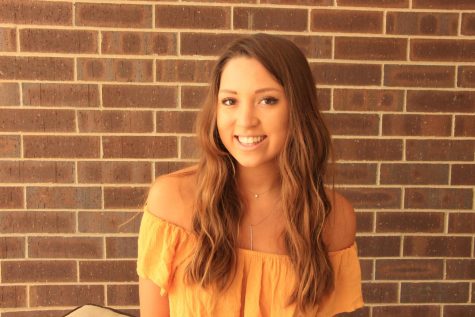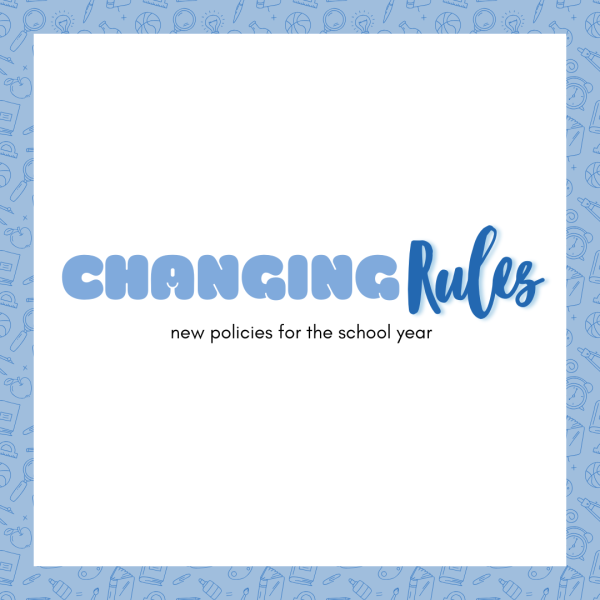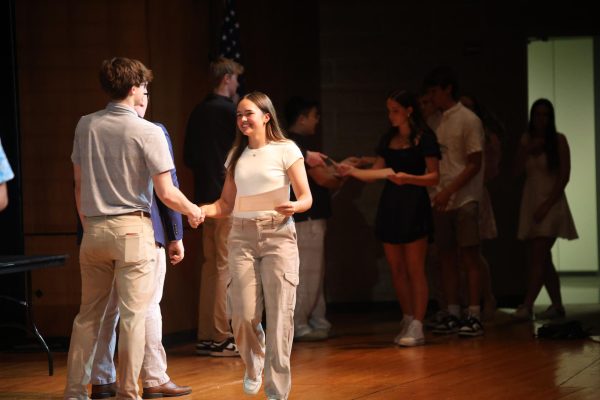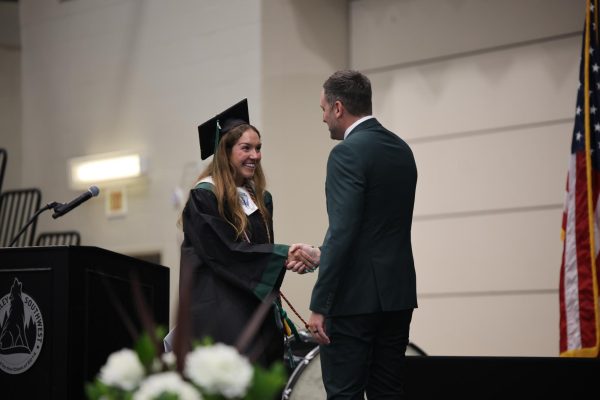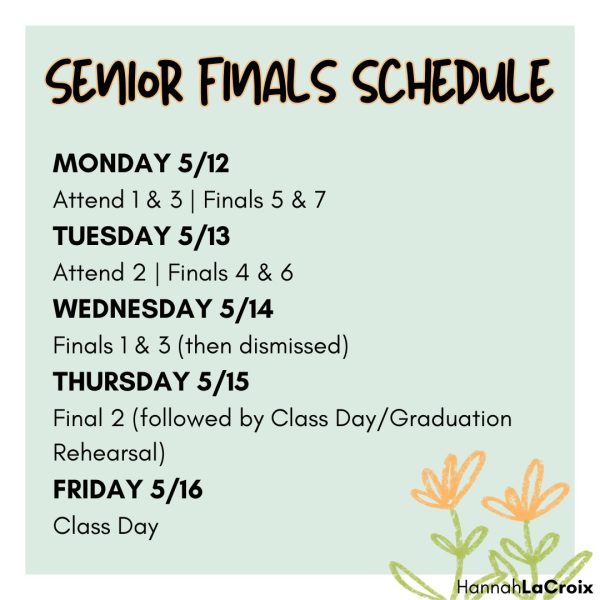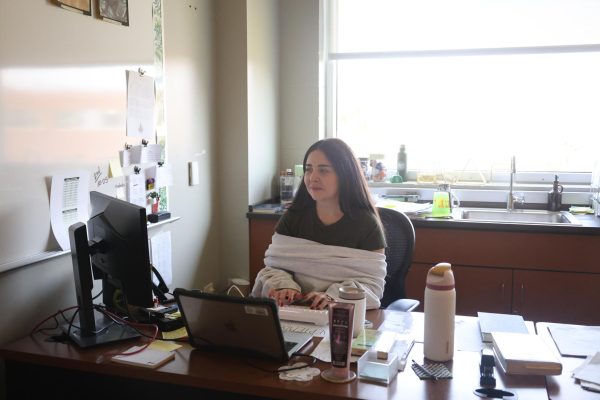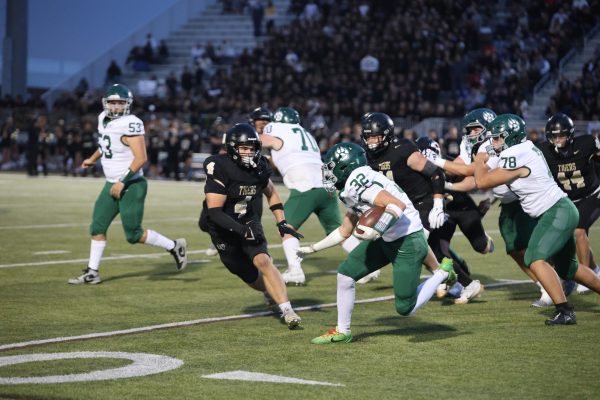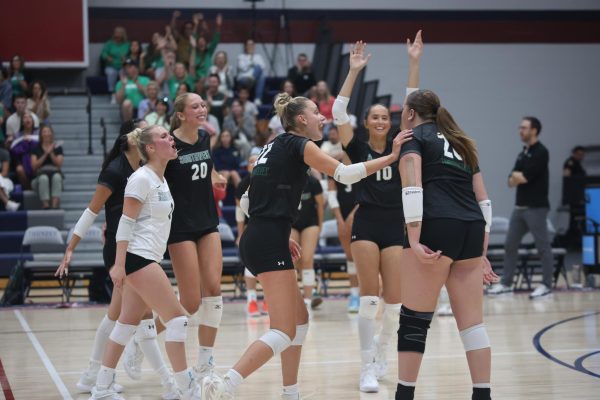Protests in Charlottesville increase racial and political tensions
As violence broke out during the “Unite the Right” rally in Charlottesville, Virginia, on Aug. 12, it seemed to many Americans that progress toward a unified nation was stopped in its tracks. However, to many, the incident merely offered a more well-publicized take on the already-divisive political climate of the United States. Senior Sumaya Hussaini said she believes president Donald Trump should do more to calm this current political atmosphere.
“Donald Trump definitely is not doing enough right now,” Hussaini said. “He did not denounce white supremacy. I think his claim that many sides are at fault is not doing enough to recognize the problem, because instead of recognizing the fact that white supremacy is bad, he is just labeling all people as being violent, which isn’t true.”
Following the rally, Trump said that “both sides” were at fault, a controversial claim due to the delicate nature of the topic, with some Americans believing that the comment simply served as a distraction from what they viewed as the central problem: white supremacy.
“Especially in the context of Charlottesville, Donald Trump needs to come out and address the side that is committing acts of terrorism and hate crimes instead of labeling everyone as dangerous,” Hussaini said.
Despite the expansive media coverage the event received, Hussaini said she believes Johnson County and the surrounding community remains far-removed from these issues.
“I think Johnson County is very sheltered from this issue,” Hussaini said. “There’s literally no diversity at all and we live in a very privileged area, so I think a lot of students are blinded that events like Charlottesville and hate crimes are happening in less modernized areas of the United States.”
Senior Brooklyn Rutledge, however, said she believes focusing on the positive aspects of the nation is critical to moving forward.
“I feel like we’re constantly hearing about stuff, like Charlottesville, and everything seems so negative, but when we really look around, when we come to school, I don’t see that in everyday life,” Rutledge said. “I don’t see my friends being racist, I don’t think we would’ve had a black man as president if it was something so extreme, so when I look at what has happened in the past, it’s horrible, however I think a lot of things have changed.”
Despite all of the past problems the nation has had regarding race, religion and ethnicity, laws have been passed to amend these problems. Though debate remains over the effectiveness of such laws, Rutledge said she believes the fact that progress has occurred is important to realize.
“We can’t settle race tensions unless we move on from the past, start fresh, and realize we’ve made all these accomplishments,” Rutledge said. “If we’re still caught up in the past, things will never get better.”
Despite her view that Americans have come a long way, Rutledge said she is aware of the struggles minorities continue to face and believes that this understanding of these historical struggles is essential. Though Rutledge is a Trump supporter, she also understands why other Americans may not fully support the current president.
“I don’t think [Trump] is very sensitive to the fact that people still have hurt feelings,” Rutledge said. “People aren’t just going to overcome that … it’s something that matters and something that happened, so I don’t think Trump is doing a very good job of empathizing with the fact that these people are still hurt and have hurt feelings about that.”
Although Rutledge said she believes Trump is able to impact the political climate of the nation, senior Seth Bryant, a supporter of the president, said he believes there is a limitation to Trump’s power when it comes to nationwide rallies and protests, regardless of the political beliefs of those involved.
“He can’t really do anything better because of the first amendment, freedom of speech,” Bryant said. “They can protest all they want, so there’s not really much he can do. They can march and do whatever.”
Following the election of 2016, protesters across the nation turned violent while voicing their opposition to the results of the election, according to an article on usatoday.com. Bryant said it is key for them to “not be violent” when exercising their rights.
Though the idea of protesting remains controversial, sophomore Faris Bdair said he believes citizens should stand up for what they believe, regardless of the views of the president.
“I think we should obviously speak up against this,” Bdair said. “But that’s easier said than done and it’s hard to change what he believes.”
According to gallup.com, a poll website, Trump’s approval rating was approximately 45 percent at the beginning of his term, and has been trending downward. Yet despite the declining number of Trump supporters, Bdair said he believes Trump supporters will continue to “blindly listen to him and his views,” which Bdair does not think has been beneficial for minorities across the nation.
“I feel like as a minority in general, anywhere I go, I’ll be slightly discriminated against because I’m not white, Bdair said. “I don’t look white, and people can tell that. As long as that’s the case, anyone who’s not white is going to get discriminated against in any environment.”
Rutledge shares some aspects of Bdair’s view and said that although racism does exist, calling out all white people for the actions of some is both unfair and unhelpful.
“There [are] always going to be racist people out there,” Rutledge said. “However, that was not my generation who has caused that. Most of us look at that and think it’s horrible, but slavery is over, we have had a black guy as president, and I think we should spend more time focusing on the positives of what we have accomplished.”
Rutledge said she thinks understanding those who are different has helped improve relations among different groups of Americans.
“We all live differently,” Rutledge said. “Some of us don’t have as much money. Some of us are of different ethnicities. We all have different backgrounds and our views all come from different places. When you understand people’s reasoning for things, it makes it a lot easier to understand them. So for me, just because I’m Republican doesn’t mean I’m going to agree with every Republican mindset.”
However, both Rutledge and Hussaini said differing political views do not need to cause division among community members, and being tactful when entering political discussions is crucial.
“Obviously people have different political views,” Hussaini said, “But if you’re going to rub it in people’s faces by doing chants or holding specific flags, it creates tension. You can have your own political views but not be open about it in a way that harms other people or makes them feel excluded. I think what’s driving us apart are people who think they’re better than others because of their skin color.”


